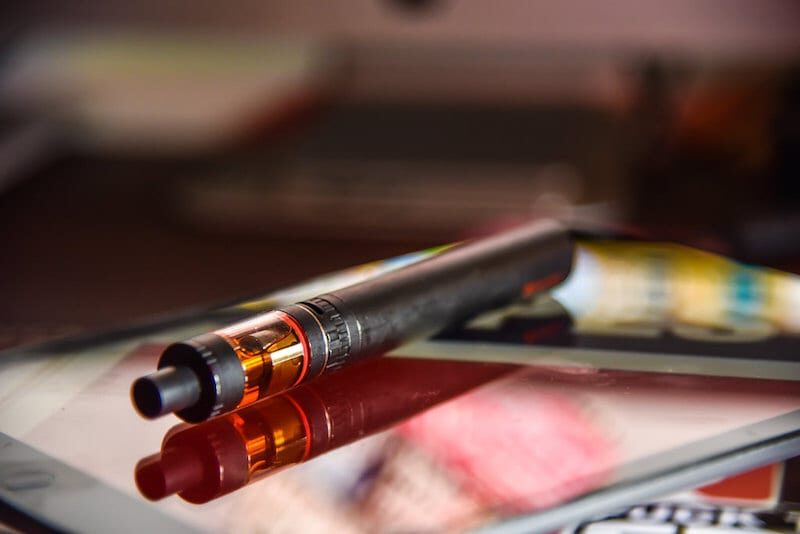Keeping Cannabis Green: Emerging Opportunities for Sustainable Industry Growth

Cultivating Awareness About The Expanding, Diverse Market for Hemp
April 9, 2017
Pot vs. Peeps
April 15, 2017By John Kagia, EVP of Industry Analytics of New Frontier Data
Rapid expansion of the cannabis industry will bring with it increased scrutiny of the industry’s environmental impacts, and opportunity for greater focus on sustainability. Two areas already drawing growing concern: resource use in cannabis cultivation (specifically as it relates to energy and water use), and the explosion in sales for disposable vaporizers, which represent one of the fastest growing segments of the industry. Addressing such environmental concerns will raise both important strategic planning questions for businesses, and important policy considerations for state regulators.
Vaporizer Pen Waste Creates Environmental Impact Issue in Growing Segment
Innovations in product development for the cannabis market have recently led to the introduction of vape pens. These disposable cartridges containing concentrated cannabis oils are quickly becoming one of the hottest product categories in the industry. Their popularity is driven by the perception that vaporizing is healthier than smoking, and because vaporizing is more discreet than smoked forms of cannabis which easily produce identifiable smoke. The vape pens, oil cartridges, and the lithium batteries used to power the devices are all discarded after an original use, and the industry has not yet developed a disposal or recycling mechanism to prevent them from ending up in landfills.
The scale of waste generated by disposable vaporizers could become immense as the industry grows. This could create a “Keurig problem” for the industry, mirroring the popular coffee brewing system which uses essentially wasteful, practically recycling-preventive plastic coffee pods. In 2014 alone, an estimated 9 billion coffee pods wound up in U.S. landfills.
Concerns about the sustainability of these products will create opportunities for new product innovation, including:
Recyclable vaporizers: Products designed by the manufacturer to be recycled are logical first steps. Since cannabis products cannot currently be transported across state lines, all vaporizers are filled in the states where they are produced. Localized distribution makes it easier to establish recycling programs through which consumers could return vaporizers to their place of purchase, allowing for reuse by the processor. Indeed, several dispensaries in adult use states like Colorado and Washington already have active recycling programs in place for vape cartridges and batteries.
The issue has arisen in the tobacco industry with the tremendous popularity of e-cigarettes. Leaders in the e-cigarette sector have established expansive recycling initiatives for used e-cigarette cartridges and lithium batteries. Environmentally responsible initiatives in the cannabis industry will likely need to develop at a grassroots level among local dispensaries, or with state government support and resources as the industry is extremely fragmented across states and brands.
Low cost modular vaporizers: Products that offer the convenience and low cost of a disposable vaporizer, but whose components, including the cartridge and battery, can be replaced. Currently, modular vaporizers are significantly more expensive than disposable ones, creating a strong incentive for consumers to purchase the low-cost option. Finding ways to lower the cost of producing modular components will be a key step toward reducing the potential environmental harm caused by disposable vaporizers.
Biodegradable vaporizers: Using biodegradable hemp plastics, which can withstand the temperatures and pressures of vaporizing, would ensure that most the vaporizer could be conveniently disposed of once the battery and any other specialized components were removed.
As this sector of the market develops, the industry needs to innovate to address the potential negative environmental impacts of vape pen waste. Manufacturers able to find cost-effective ways to address this issue will be able to capitalize on a growing industry concern at a time of surging demand.
Water Use in Cannabis Cultivation Will Be Increasingly Regulated in Adult Use Markets
Cannabis cultivation requires large amounts of water, increasing demand for an already strained public resource in many states. California, which is the largest producer of cannabis in the country, has suffered a prolonged drought over the past few years that has resulted in restrictions on water usage for agriculture and personal use, impacting growers in some parts of the state.
In mid-2016, the California state government announced plans to require cannabis producers to obtain licenses for water use in cultivation. The new regulations limit water diversion and transportation, instead requiring cultivators to construct water storage facilities. Full implementation and industry compliance with these regulations will be slow and difficult, as most growers in California are still operating illegally. The California state government is likely to increase enforcement against illicit and non-compliant growers to better preserve the state’s water supply.
California has also established a task force to study the effects of cannabis cultivation on the environment. The task force has the authority to levy fines and penalties on growers who violate state regulations and otherwise waste resources. Additionally, the task force will assess streamflow needs to address watershed reduction in regions with significant cannabis cultivation. One major problem the task force will be analyzing is runoff from outdoor cannabis cultivation, which often contains chemical contaminants and unregulated pesticides which get absorbed into the watershed.
Following California’s lead, other states in both the adult use and medical spaces are likely to implement restrictions on water usage, particularly in liberal-leaning states where environmental protection is a popular issue, and in the Southwest where water resources are sparse. Further regulation may require strict land-use planning for cultivators to prevent either additional contamination of water sources or soil erosion.
Key Takeaways
As the cannabis industry grows, responsible business practices including a focus on environmental sustainability can be of vital help toward reducing the risk of regulatory backlash and enforcement actions from both state regulators and the federal government. Additionally, greater social responsibility helps legitimize the industry in the eyes of skeptics, as businesses demonstrate willingness to take an interest in the industry’s impact from a triple-bottom-line standpoint, which considers the impact on people (i.e., the communities where businesses are based), planet (the environmental impact of the business), and profits (delivering appropriate financial results to the businesses’ stakeholders).

John Kagia
John Kagia is the Executive Vice President, Industry Analytics for New Frontier Data. He applies his keen understanding of market research, business strategy and industry analysis to help high performing organizations achieve their strategic objectives. Leveraging his years of experience managing research studies for industry-leading clients including Accenture, Microsoft, The George Washington University, and the U.S. Department of State, Kagia brings a keen understanding of how market insights enable organizations to plan, grow, compete, and measure performance more effectively.
Kagia is particularly interested in helping to identify and build sustainable competitive positions. His passion about issues such as disruptive innovation and new market opportunities, has brought him to focus on identifying strategic business opportunities in the fast-evolving marijuana industry.
He received his MSc. in Marketing with a Market Research focus from Johns Hopkins University’s Carey Business School. He concurrently studied Japanese at the university’s School for Advanced International Studies (SAIS). He received an MA in Management from the University of Durham in the United Kingdom, and his B.A., Joint Honors, in Japanese and Management from the University of Leeds also in the UK.
Kagia is Past President of the Mid-Atlantic chapter of the Market Research Association (MRA), and has earned Professional Researcher Certification (PRC) status. He is also an active member of the American Marketing Association (AMA).




